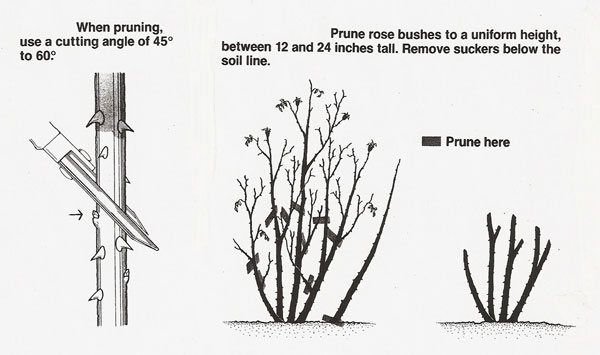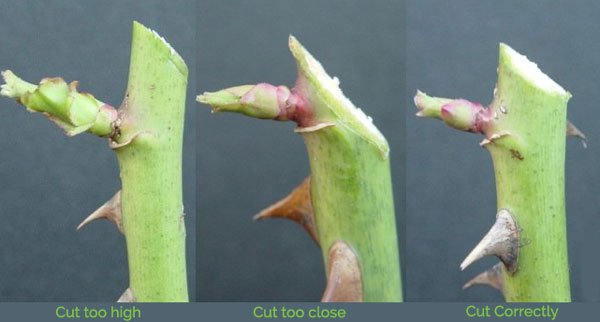How to Prune Roses
Don’t let the task of pruning your roses become daunting. It’s really very easy with the aim being simply to keep the centre of the bush fairly open and airy by removing overcrowded canes. In NZ rose pruning should be complete in July through to mid-August.
1. Remove dead wood
First of all remove all dead wood including stumps left from previous pruning, then any weak and twiggy growth. Snip off any stick-like twigs that sprout from the main stems as these twigs only produce a few scraggy leaves if left.
2. Cut back damaged canes
Next cut back damaged canes to a healthy bud. If a cane appears brown in the centre this could be a sign of ‘die back’ so simply cut down bud by bud until you reach healthy white wood.

3. Crossing canes
If two canes are crossing or rubbing together, remove or shorten one of the pair to stop this happening.
4. Cut back remaining canes
Now the remaining canes are cut back by 1/2-1/3 of their length.
That's it. You're finished! Ideally, all cuts should be about 6mm above the bud, preferably to an outside one, at an angle sloping downwards.
Standard roses are pruned in the same way but try to create a more even shape and cut the canes a little shorter. A standard rose is simply a bush rose grafted onto a 90cm stem.
Climbers with their unwieldy canes that sprawl in all directions can present a fearful task. To keep them manageable, simply select four or five good canes on each side of the plant and tie horizontally. The remaining, left-over canes just cut out. On the good canes that you tied together, trim all the side shoots to two or three buds. This will give you a wonderful display all along the stems with the perfume at nose level. If the canes are left to reach for the sky their blooms and fragrance will only flutter at the very top.
Rambler roses mostly flower in summer only and usually flower on new canes produced after flowering, therefore, remove the canes that flowered last summer and tie the long new canes in their place. Cut the old canes out right down at the base of the plant to encourage new growth for next year. In spring snip back the tips of climbing and rambling roses as the ends usually fail to ripen and flowers are never produced from these soft tips.


11979